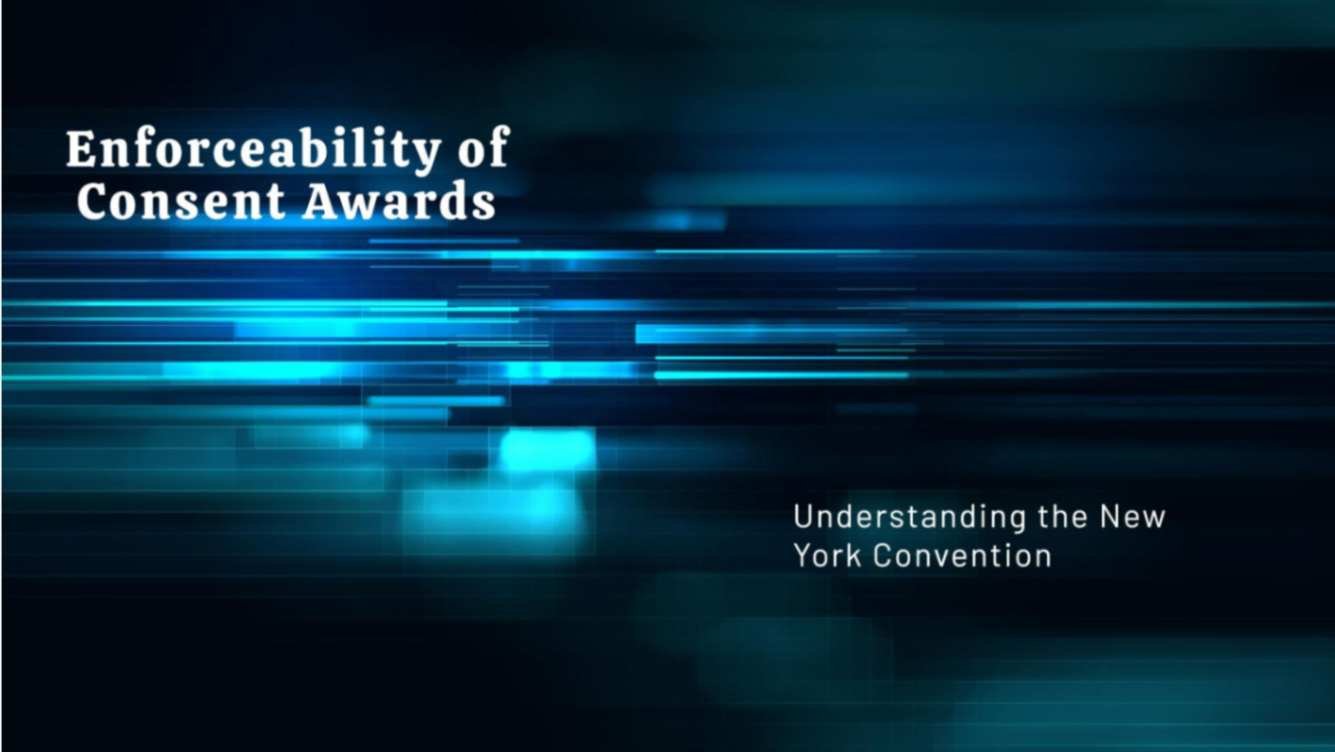
Case title – Nuovo Pignone v Cargo Motors Pvt. Ltd. (“Nuovo Pignone”)
Facts:
👉The dispute between the parties arose from an Equipment Purchase Agreement, which contained an arbitration clause concerning any disputes arising out of the same. After the constitution of the arbitral tribunal by the ICC Court of Arbitration, and the completion of pleadings, both parties collectively informed the sole arbitrator that they had arrived at a mutual settlement of the dispute. A draft consent award was drawn and circulated to the parties for their input thereafter.
👉The Tribunal specifically noted that the Respondent – Cargo Motors Pvt Ltd – had raised no objections to the inclusion of the terms of the Settlement Agreement into the draft consent award circulated by the ICC.
👉The Respondent challenged the enforcement of the consent award on two broad grounds. First, consent awards were unenforceable under the New York Convention since the Convention only recognised awards that arose out of “differences” between parties. Second, the Respondent contended that it was coerced to agree to the draft consent award.
Sequitur by the court:
👉At the very outset, the Delhi HC acknowledged that Article I of the Convention does not define “arbitral awards”. It provides an inclusive explanation, describing the phrase to comprise awards passed by arbitration institutions. The Court explained that the existence of a dispute between parties sets the arbitral process into motion; consequently, the same comes to an end once the parties reach an agreement or settlement. Also, the Delhi HC reasoned that, since such settlement is not prohibited under the Convention, the terms of settlement can be adopted by the Arbitral Tribunal in order to make it enforceable in law.
👉The reasoning of the Delhi HC is in consonance with the position under Indian law with respect to consent decrees. In Indian law, a consent decree stands on the same pedestal as a decree drawn by the courts after the conclusion of an adversarial trial. A corollary to consent decrees can be found under section 30(4) of the Arbitration and Conciliation Act 1996 (“Arbitration Act”), which specifically recognises consent awards in domestic arbitral proceedings.
👉In Nuovo Pignone, the Delhi high court extended the same reasoning for providing recognition to foreign consent awards, falling under Part II of the A&C Act. The Court observed that no institutional rules or domestic/international statute place any restriction on two contesting parties terminating the arbitration proceedings on the basis of a mutual agreement.
👉In furtherance of the same, the Court referred to specific provisions from laws and arbitration rules of major arbitral institutions – such as the siac , LCIA, the English Arbitration Act, and the uncitral – all of which explicitly recognise the power of tribunals to record a potential settlement by parties in the arbitral award.







